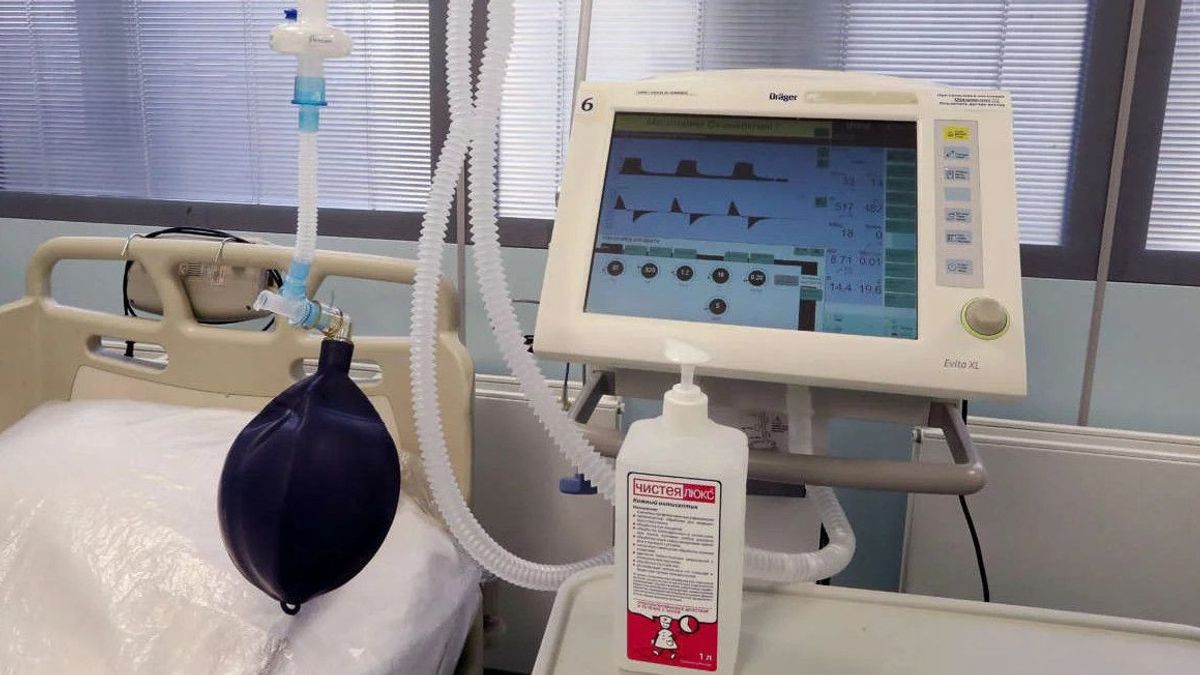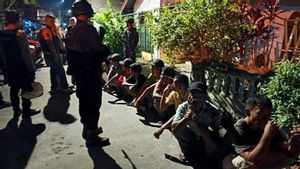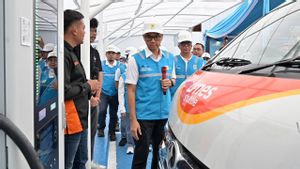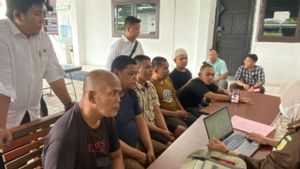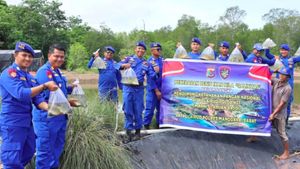JAKARTA - The need for ventilators or breathing aids continues to increase along with the addition of positive patients infected with corona or COVID-19. The government also continues to develop these medical devices, considering that currently this tool is very much needed in dealing with this virus.
Currently, the Ministry of Health (Kemenkes) needs 1,000 ventilators based on Continuous Positive Airway Pressure (CPAP). CPAP ventilators are usually used for patients with sleep apnea disorders or conditions in which breathing stops while sleeping.
Minister of Research and Technology, Bambang Brodjonegoro, is targeting mass production of domestically made ventilators starting next week. Currently, of the 28 proposals for making ventilators, four of them have completed submissions at the Health Facilities Safety Center (BPFK) of the Ministry of Health.

The four prototypes that have finished testing the tools include those from the University of Indonesia, the Bandung Institute of Technology, Padjadjaran-Salman University, Dharma Group, and the Agency for the Assessment and Application of Technology (BPPT).
"We hope that clinical trials can be completed this week so that next week production will start," he said, in a virtual joint meeting with Commissions VI, VII and IX of the DPR RI, Tuesday, May 5.
Bambang said the domestic ventilator production capacity is quite high. One of them, in collaboration with BPPT, can produce up to 100 ventilators per week per factory.
"And hopefully this can meet the needs of health workers and the latest information from the Ministry of Health requires 1,000 units of CPAP and 700 units that have collapsed," he said.
Difference between Ambubag and CPAP ventilators
Bambang explained, there is a difference between the CPAP and ambubag ventilator. Ambubag ventilators are widely used for purposes such as in emergency departments (IGD) and
Intensive Care Unit (ICU). Meanwhile, the CPAP ventilator, although it can be used in an emergency, is more commonly used for non-emergency conditions.
"CPAP can be used in emergencies, but it is more portable in non-emergency rooms," he explained.
Collaborate with private companies and state-owned companies
Deputy Minister of BUMN Budi Gunadi Sadikin said that the ambubag ventilator that was owned was only 100 pcs of the 500 ICU beds. However, currently it is in the process of adding 400 ventilators, so that all ICU hospital beds (RS) BUMN.
"It is hoped that we can immediately have each ventilator because this tool is what really determines the death of patients when they enter the ICU," he said.
BUMN has around 70 hospitals, 35 of which are dedicated to COVID-19 with a total of 7,000 rooms out of a total hospital, while 2,500 rooms are used for the treatment of COVID-19 patients.
Budi said, several state-owned companies had become sponsors for the development of non-invasive ventilators in collaboration with the Ministry of Research and Technology and also several universities such as UI, ITB, UGM and Unair to be able to produce domestic non-invasive ventilators.
"We have also matched, partnered with universities that can design ventilators with state-owned companies such as PT LEN, PT Dharma and PT Pindad," he said.
On the same occasion, Head of BPPT Hammam Riza said, currently there are three types of emergency ventilators that are processed by PT LEN, PT Poly Jaya, and PT Dharma Group for emergency installation (IGD) and ambulance.
"As explained, we are currently in the testing phase for the ventilator which will be produced. Currently, we hope that this week we can submit it to the hospital through the Director General of Farmakes to carry out clinical trials, as conveyed by the Minister of Research and Technology that clinical trials and distribution permits are the stages. that we have to get through, "he said.
The English, Chinese, Japanese, Arabic, and French versions are automatically generated by the AI. So there may still be inaccuracies in translating, please always see Indonesian as our main language. (system supported by DigitalSiber.id)
